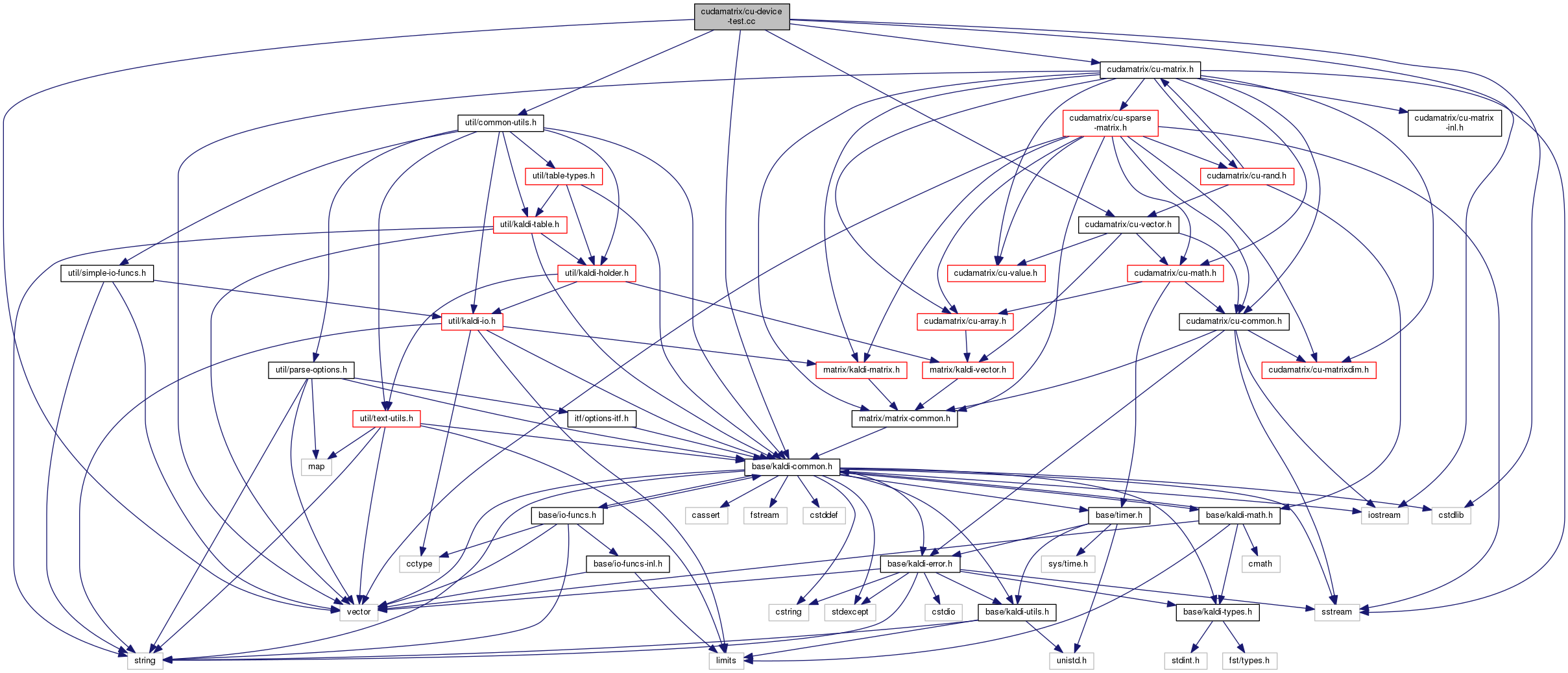#include <iostream>#include <vector>#include <cstdlib>#include "base/kaldi-common.h"#include "util/common-utils.h"#include "cudamatrix/cu-matrix.h"#include "cudamatrix/cu-vector.h"
Go to the source code of this file.
Namespaces | |
| kaldi | |
| This code computes Goodness of Pronunciation (GOP) and extracts phone-level pronunciation feature for mispronunciations detection tasks, the reference: | |
Functions | |
| template<typename Real > | |
| std::string | NameOf () |
| template<typename Real > | |
| void | TestCuMatrixResize (int32 size_multiple) |
| template<typename Real > | |
| void | CudaMatrixResizeTest () |
| int | main () |
| int main | ( | ) |
Definition at line 101 of file cu-device-test.cc.
References KALDI_LOG, KALDI_WARN, and kaldi::SetVerboseLevel().